According to Decree No. 70/2025/ND-CP of the Government , from June 1, 2025, households and individuals doing business are required to use electronic invoices. However, this new regulation makes many small traders confused because they are not familiar with digital tools.
The seminar “Accompanying business households and small enterprises in the digital age”, organized by Kinh te do thi newspaper on September 25 at the hall of Dong Xuan Joint Stock Company - the management unit of Dong Xuan market - attracted a large number of small traders at the most famous traditional market in Hanoi.
Ms. Nguyen Van Hang is a long-time accessory vendor at Dong Xuan market (Hoan Kiem ward, Hanoi ). At middle age, although she is used to using smartphones, when she heard about electronic invoices connecting directly to the tax authorities, she still felt worried. Her monthly income is not high, the fear of the cost of software, equipment and declaration procedures exceeding her ability made her even more confused.
“I am only used to writing in notebooks, now hearing about technology and declaring new taxes makes me scared. I am also worried that it will cost a lot if I have to buy more equipment,” Ms. Hang shared.

Ms. Hoang Van, a clothing trader at Dong Xuan market, said: "The younger generation is still proficient with machines, but the 7X generation like us, when it comes to technology and digital transformation, has certain hesitations."
The concerns of Ms. Hang and Ms. Van reflect the common reality of thousands of business households struggling to adapt to the digitalization process, especially in the context of Decree 70/2025 stipulating that business households are required to use electronic invoices through cash registers.
Ms. Nguyen Hong Trang, Vice Chairman of the People's Committee of Hoan Kiem Ward, said that in the new Hoan Kiem Ward, there are currently 4,310 business households and nearly 2,000 small enterprises. Many of them operate in the fields of trade, services, and tourism. This is an important contributor to the local budget and creates jobs for workers.
The traders at Dong Xuan market (in Hoan Kiem ward) alone contribute about 67 billion VND in taxes to the state budget each year.
However, this group is under a lot of pressure to quickly adapt to the new requirements of Decree 70, from using electronic invoices to managing accounting books.
Therefore, Hoan Kiem Ward has increased propaganda to business households to help them understand the role and benefits of conversion. In addition, the ward is also looking for technology and solution businesses to act as a bridge to help people.
Ms. Trang suggested that the State should consider an initial cost support package, especially for small businesses. This would help reduce the financial burden of investing in software or equipment, thereby encouraging small businesses to boldly embark on the transformation path.
Ms. Le Yen, Director of Hanoi Tax Consulting Company (Hanoitax), said that the biggest concern of business households is not only tax procedures, but also the fear of having to change long-standing business habits. If looking at the positive side, switching to a declaration mechanism will help business households to make their revenue transparent, easily access credit capital instead of just relying on mortgaged assets and expanding their scale.
Agreeing with the above viewpoint, Mr. Nguyen Ha Thanh, Deputy General Director of Dong Xuan Joint Stock Company, said that traditional markets like Dong Xuan are facing great opportunities for innovation. The application of digital payments and electronic invoices not only helps small traders operate transparently but also enhances their reputation, creating an advantage in competing with modern sales channels.
However, small traders also need strong support in technology and policy.
Source: https://vietnamnet.vn/tieu-thuong-cho-dong-xuan-loay-hoay-ke-khai-hoa-don-dien-tu-2446187.html



![[Photo] Prime Minister Pham Minh Chinh chairs the Government's online conference with localities](https://vphoto.vietnam.vn/thumb/1200x675/vietnam/resource/IMAGE/2025/10/5/264793cfb4404c63a701d235ff43e1bd)

![[Photo] Prime Minister Pham Minh Chinh launched a peak emulation campaign to achieve achievements in celebration of the 14th National Party Congress](https://vphoto.vietnam.vn/thumb/1200x675/vietnam/resource/IMAGE/2025/10/5/8869ec5cdbc740f58fbf2ae73f065076)




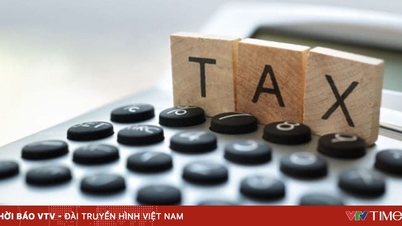








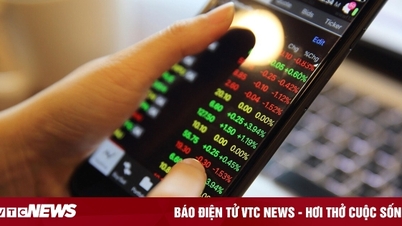






































![[VIDEO] Summary of Petrovietnam's 50th Anniversary Ceremony](https://vphoto.vietnam.vn/thumb/402x226/vietnam/resource/IMAGE/2025/10/4/abe133bdb8114793a16d4fe3e5bd0f12)

![[VIDEO] GENERAL SECRETARY TO LAM AWARDS PETROVIETNAM 8 GOLDEN WORDS: "PIONEER - EXCELLENT - SUSTAINABLE - GLOBAL"](https://vphoto.vietnam.vn/thumb/402x226/vietnam/resource/IMAGE/2025/7/23/c2fdb48863e846cfa9fb8e6ea9cf44e7)


















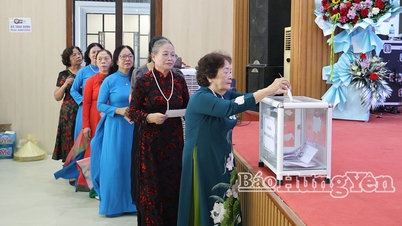
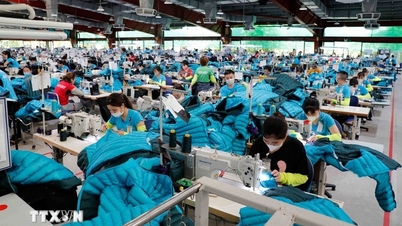

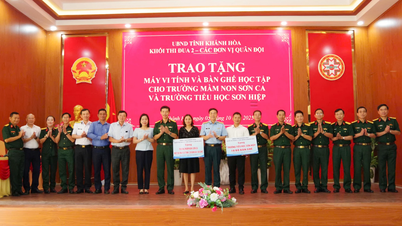















Comment (0)